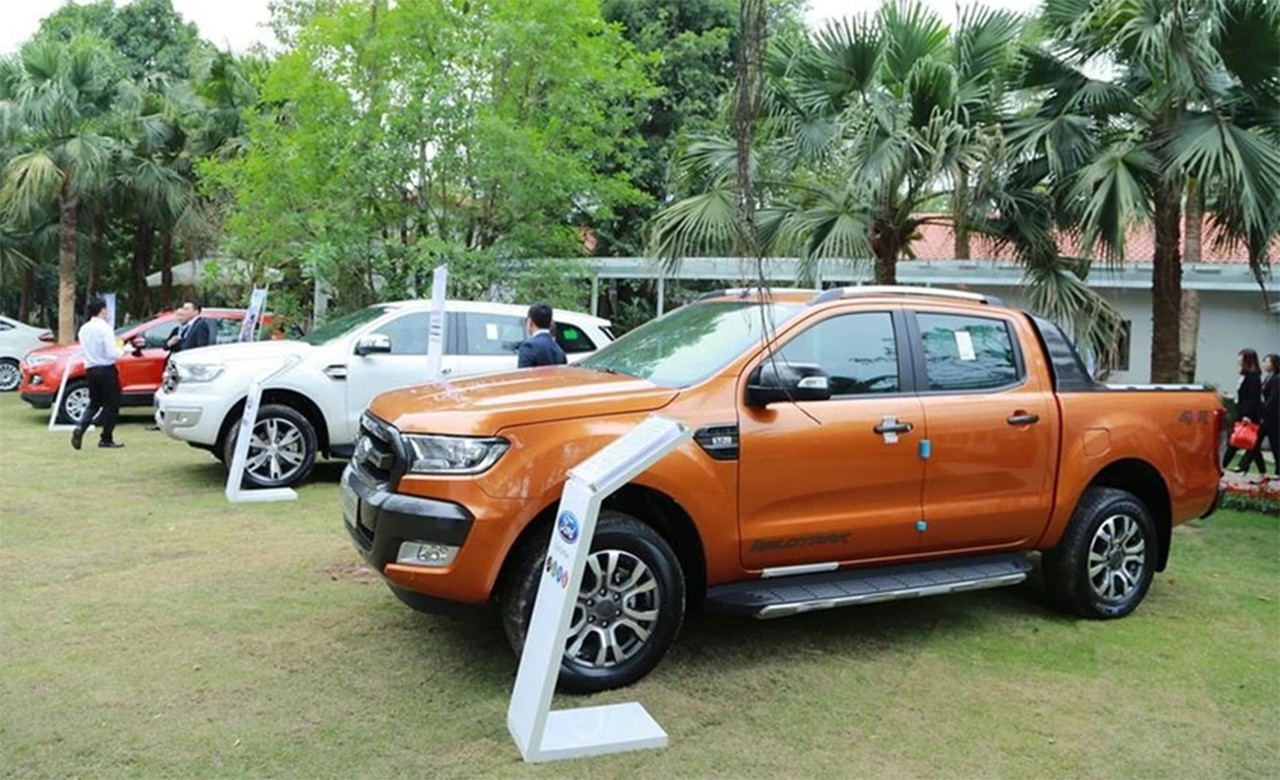The proposed increase in the special consumption tax (SCT) on pickup trucks is generating significant buzz, especially within the truck-using community and transport businesses. So, the question is when will the pickup truck tax increase and how will this affect the Vietnamese auto market? To clarify this issue, we have compiled information from VOV Giao thông’s interview with Mr. Dao Cong Quyet, Head of the Public Relations Subcommittee of the Vietnam Automobile Manufacturers Association (VAMA).
In the draft revised Law on SCT, the Ministry of Finance has proposed adjusting the tax rate for double-cab pickup trucks carrying goods. Currently, this type of vehicle is subject to a tax rate of 15-25% depending on engine capacity, which is considered equivalent to cargo vehicles. However, the latest draft introduces a significantly higher tax rate, potentially reaching 60% compared to internal combustion engine vehicles with equivalent displacement.
 Versatile pickup truck, suitable for both work and family
Versatile pickup truck, suitable for both work and family
According to Mr. Dao Cong Quyet, if this proposal is approved, pickup truck taxes could increase by 9-10% for small-engine vehicles and sharply increase by several tens of percent for vehicles with large engines, above 3.0L and 4.0L. This is a major change, directly impacting vehicle prices and consumer accessibility.
VAMA’s Reaction: Concerns About Negative Market Impact
The Vietnam Automobile Manufacturers Association (VAMA) has expressed deep concern about this proposed tax increase. According to VAMA, pickup trucks are mainly used in rural, remote areas, and provinces, where the main users are small businesses, farmers, and farms with limited economic conditions.
Increasing the SCT will drive up the price of pickup trucks, reducing access for this group of customers. This not only affects the business operations of automobile companies but also negatively impacts the economic lives of people in areas outside major cities like Hanoi and Ho Chi Minh City.
The market share of pickup trucks in Vietnam is currently not large, only ranging from 3.4% to less than 5%. Therefore, VAMA believes that increasing the pickup truck tax will not generate significant budget revenue for the State.
 Representative of VAMA (Vietnam Automobile Manufacturers Association) discussing the proposed pickup truck tax
Representative of VAMA (Vietnam Automobile Manufacturers Association) discussing the proposed pickup truck tax
VAMA’s Recommendations to Stabilize the Vehicle Market
In light of this situation, VAMA has officially submitted comments to management agencies, the Ministry of Finance, relevant ministries, and the National Assembly. In particular, VAMA recommends maintaining the current SCT rate for double-cab pickup trucks carrying goods.
In addition, VAMA also made proposals related to tax policies for hybrid vehicles. The Association believes that hybrid vehicles are an inevitable trend in the world and need a suitable support roadmap to encourage people to switch to using more environmentally friendly vehicles.
VAMA proposes reducing the SCT for self-charging hybrid vehicles (HEV) to 70% compared to similar vehicles and reducing the tax for plug-in hybrid vehicles (PHEV) to 50% compared to equivalent vehicles. In the period from 2022-2030, VAMA believes that there needs to be strong support policies for HEV and PHEV through SCT and other fees to protect the environment and change consumption habits.
From 2030-2040, support for HEV and PHEV can be gradually reduced and focus on supporting pure electric vehicles (BEV). After 2040, when infrastructure develops and people are familiar with electric vehicles, tax support policies may no longer be needed.
Conclusion: The Timing of the Pickup Truck Tax Increase Remains Open
Thus, information from VAMA shows that the proposed increase in pickup truck tax is still in the draft stage and is soliciting opinions. When will the pickup truck tax increase is still a question without an official answer. However, with the analysis and recommendations from VAMA, it is hoped that management agencies will carefully consider the socio-economic impacts before making a final decision, ensuring the sustainable development of the automobile market and the rights of consumers.

